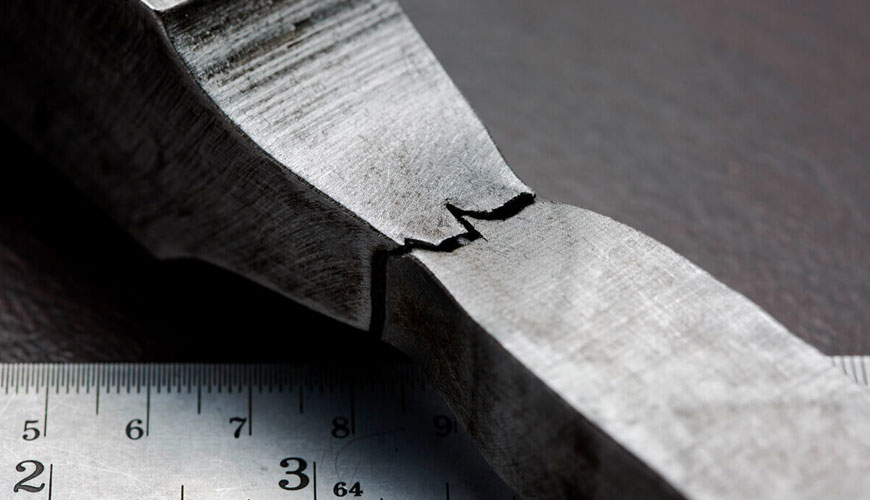

The ISO 1099 standard, developed by the International Organization for Standardization (ISO), specifies conditions for conducting axial, constant amplitude, force-controlled, fatigue tests on metal samples at ambient temperature without intentionally applied stress concentrations.

The purpose of the test when using this document is to provide fatigue information such as the relationship between the applied stress and the number of cycles to failure for a given material condition, such as hardness and microstructure at various strain rates.
While describing the shape, preparation, and testing of circular and rectangular specimens, component testing and other special forms of testing are not included in this document.
Fatigue tests on notched specimens are not covered by this document as the shape and size of the notched test pieces are not standardized. However, the fatigue testing procedures described in this document are applicable to fatigue testing of such notched specimens.
Engineering stress is used throughout this document. Engineering stress is defined as the ratio of the force applied axially to the cross-sectional area of the test specimen at the test temperature, S = Force/Area.
The purpose of this document is to provide guidance for performing axial, constant amplitude, force-controlled, cyclic fatigue tests on samples of a metal to generate fatigue life data (i.e. stress versus cycles to failure) for material characterization.
Nominally identical specimens are mounted on an axial force type fatigue testing machine and subjected to the required cyclic force conditions that elicit any type of cyclic stress.
The force applied to the specimen is along the longitudinal axis through the center of each section. The test continues until the sample fails or a predetermined number of stress cycles is exceeded. Tests are typically performed at ambient temperature (ideally 10°C to 35°C).
Among the services provided by our organization within the framework of material testing services, there are also ISO 1099 standard tests. Do not hesitate to contact our laboratory EUROLAB for your testing and certification requests.
To get an appointment, to get more detailed information or to request an evaluation, you can ask us to fill in our form and reach you.